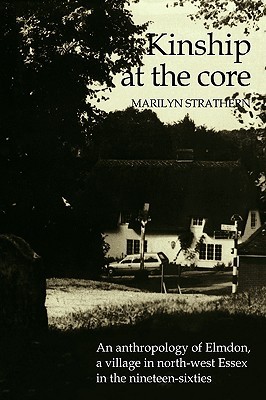
- We will send in 10–14 business days.
- Author: Marilyn Strathern
- Publisher: Cambridge University Press
- ISBN-10: 052110503X
- ISBN-13: 9780521105033
- Format: 15.2 x 22.9 x 1.9 cm, minkšti viršeliai
- Language: English
- SAVE -10% with code: EXTRA
Reviews
Description
In the village of Elmdon in north-west Essex, members of certain families are distinguished from other residents as being `real Elmdon'. Through a detailed ethnography of the structure of the village, and the interrelationships between its various families, work patterns and community activities, Marilyn Strathern provides an understanding of the characteristics of those who most vehemently claim to be 'real' village people. Yet this account goes far beyond ethnographic description. Its inspiration lies with Dr Audrey Richards, a distinguished anthropologist whose most substantial contribution has been in Africa, while Dr Strathern herself has had many years' field experience in Papua New Guinea. As 'outsiders' they bring a fresh approach to English village studies. The book takes the idea of 'village' not for granted, but as a dogma to be accounted for. Dr Strathern argues that in order to appreciate why the village should be so salient a reference point in people's self-classifications, it is necessary to understand what the village stands for in their ideas of the world.
EXTRA 10 % discount with code: EXTRA
The promotion ends in 23d.05:48:50
The discount code is valid when purchasing from 10 €. Discounts do not stack.
- Author: Marilyn Strathern
- Publisher: Cambridge University Press
- ISBN-10: 052110503X
- ISBN-13: 9780521105033
- Format: 15.2 x 22.9 x 1.9 cm, minkšti viršeliai
- Language: English English
In the village of Elmdon in north-west Essex, members of certain families are distinguished from other residents as being `real Elmdon'. Through a detailed ethnography of the structure of the village, and the interrelationships between its various families, work patterns and community activities, Marilyn Strathern provides an understanding of the characteristics of those who most vehemently claim to be 'real' village people. Yet this account goes far beyond ethnographic description. Its inspiration lies with Dr Audrey Richards, a distinguished anthropologist whose most substantial contribution has been in Africa, while Dr Strathern herself has had many years' field experience in Papua New Guinea. As 'outsiders' they bring a fresh approach to English village studies. The book takes the idea of 'village' not for granted, but as a dogma to be accounted for. Dr Strathern argues that in order to appreciate why the village should be so salient a reference point in people's self-classifications, it is necessary to understand what the village stands for in their ideas of the world.


Reviews